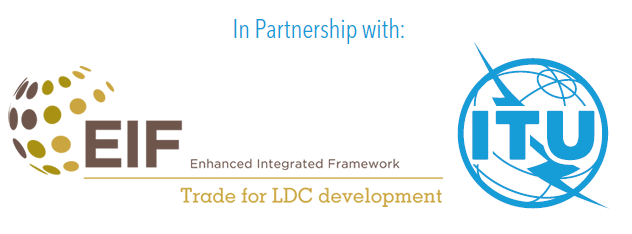3.4 Arab States
Practices are characterized by a focus on, at least, a combination of access to digital skills and access to digital technology (2 out of 3 practices covering these policy areas). The other practice addresses all the four policy areas. Two out of three practices target women and girls and/or gender equality, specifically.
Table 5: Access to digital skill, technology, inclusion, entrepreneurship, infrastructure and services (Arab States)
| Practice | Access to digital technology | Access to digital skills | Financial inclusion | Entrepreneurship and leadership | Access to infrastructure and digital services |
| Qodwa Tech initiative for women empowerment (Egypt) | X | X | |||
| Mahara-Tech online tech platform (Egypt) | X | X | |||
| Mainstreaming Gender through National Inter-Sectoral Gender Strategy (State of Palestine) | X | X | X | X |
Practices are aligned with national strategic documents. The practice from the State of Palestine is a strategy in itself: The National Inter-Sectoral Gender Strategy (State of Palestine) institutionalizes gender mainstreaming in both policies and practices, not only at the government level but in other sectors, projects and activities. Egypt’s Tech initiative for women empowerment is in line with the Egypt vision 2030: National Strategy for the Empowerment of Egyptian Women and with Ministry of Communications and Information Technology (MCIT) human development strategy (placing special consideration to the development of disadvantaged groups including women and persons with disabilities).
Key highlights
Activities
| Training packages in basic IT, Internet, digital marketing, and e-commerce. | |
| Online content specialized in ICT areas that are identified highly demanded such as cyber security; data analysis; programming using JAVA/Open Source/. | |
| Short technology career awareness movies presented by key experts. | |
| Mentorship by both males and females in order to address the gender perspective and take into consideration different socio-economic backgrounds and regions. | |
| Consultation sessions to support and guide women entrepreneurs in the field of digital marketing. | |
| Hackathon to raise young women’s awareness on new technologies. | |
| Gender needs assessment and put in place an engagement approach to increase the access of women to IT service companies, including to management and leadership positions. |
Resources
| Online portal for the exchange of knowledge among women and girls. | |
| Non-financial resources generated mainly through the wide network of partnerships including the government, civil society and the private sector. | |
| Internationally funded projects cover some of the required resources. | |
| Organization of joint activities for pooling resources. |
Collaboration and partnerships
| Stakeholders: Ministry of Social Solidarity; Ministry of Communications and Information Technology; Ministry of Youth and Sports; National Council of Women; Micro, Small, Medium Enterprise Development Association. | |
| Project governance includes a project manager, an M&E manager, and a set of project coordinators. | |
| Institutionalized gender mainstreaming in both policies and practices, for instance, by developing a national inter-sectoral gender strategy such as the one from the State of Palestine. | |
| A project manager, an M&E manager, and a set of project coordinators in charge of the project governance. | |
| Two teams to manage the project: a technical team and a management and communication team. | |
| Gender mainstreaming is part of planning, strategic drafting and budgeting of government institutions (e.g., State of Palestine). |
The Tech initiative for women empowerment (Egypt) designed an online portal that contributes to the exchange of knowledge among them, and developed training packages in basic IT, Internet, digital marketing, and e-commerce. Consultation sessions are organized to support and guide women entrepreneurs in the field of digital marketing, and a hackathon raises young women’s awareness on new technologies. A project manager, an M&E manager, and a set of project coordinators are part of the governance of the project. Non-financial resources are generated mainly through the wide network of partnerships including the government, civil society and the private sector. Government partnerships include the Ministry of Social Solidarity, Ministry of Youth and Sports, National Council of Women, Micro, Small, Medium Enterprise Development Association. The initiative is in line with the Egypt vision 2030: National Strategy for the Empowerment of Egyptian Women and with Ministry of Communications and Information Technology human development strategy (placing special consideration to the development of disadvantaged groups including women and persons with disabilities).
The Mahara-Tech online tech platform (Egypt) offers training content and short technology career awareness movies presented by key experts. Online content is specialized in ICT areas that are identified highly demanded such as cybersecurity; data analysis; programming using JAVA/Open Source/. Mentors are both males and females in order to address the gender perspective effectively, while taking into consideration different socio-economic backgrounds and regions across the country. The project is managed by two main teams: the Technical Team (in-house production team) and the Management and Communication Team.
The National Inter-Sectoral Gender Strategy (State of Palestine) institutionalizes gender mainstreaming in both policies and practices, not only at the government level but in other sectors, projects and activities. While the work of the Ministry of Women’s Affairs is fully dedicated to gender mainstreaming, ministerial gender units perform their own activities and initiatives. The same applies to private sector and is embedded in projects and other initiatives. The gender needs assessment and engagement subcomponent seeks to increase the access of women to IT service companies, including to management and leadership positions. Gender mainstreaming is also part of planning, strategic drafting and budgeting of government institutions. Collaborations and partnerships with the private sector, civil society and internationally funded projects cover most of the required resources. Joint activities use pooled resources and knowledge is widely shared.

